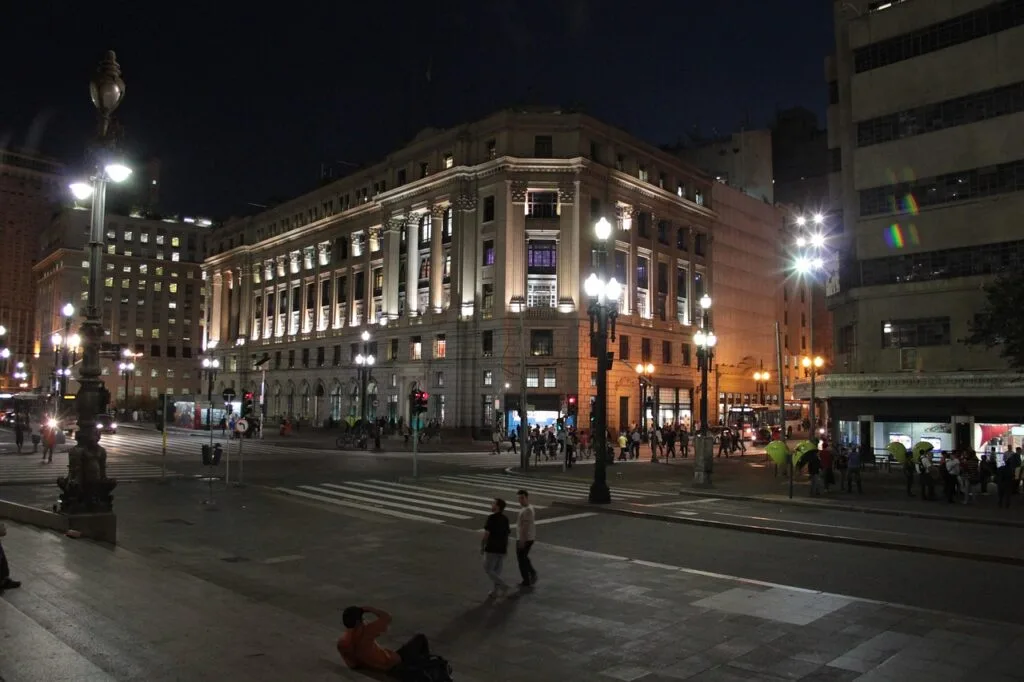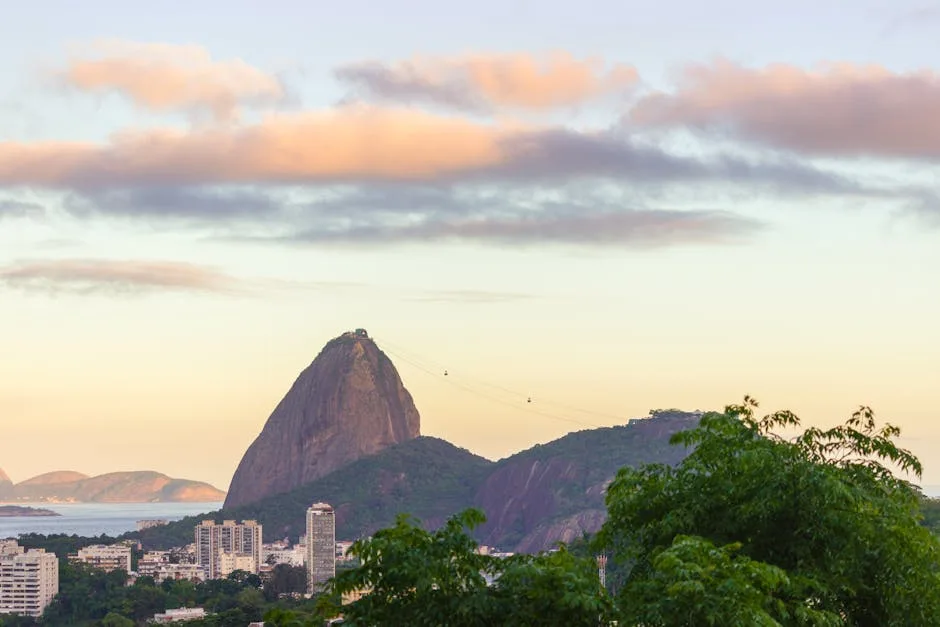Have you ever dreamed of owning a piece of Brazil? Whether it’s a beachfront condo in Copacabana, a modern apartment in São Paulo, or launching your dream business in Florianópolis, Brazil presents exceptional opportunities for foreign investors ready to embrace one of the world’s most dynamic emerging markets.
Brazil’s investment landscape has become increasingly attractive for international capital, particularly in real estate and entrepreneurial ventures. With its diversified economy, population exceeding 215 million, and rapidly expanding middle class, the country has established itself as a premier destination for investors seeking portfolio diversification or lifestyle transformation.
Real Estate Investment in Brazil: Securing Your Tropical Paradise
Legal Framework for Foreign Property Ownership
The fundamental question many ask is: can foreigners own property in Brazil? Absolutely! Brazil’s Federal Constitution grants foreign residents the same property rights as Brazilian citizens when it comes to urban real estate acquisition.
For urban properties, virtually no restrictions exist. You can freely purchase that penthouse in Ipanema, a colonial house in Ouro Preto, or a modern loft in São Paulo’s Vila Madalena with minimal bureaucratic obstacles. Rural properties do have certain limitations, which we’ll address in detail.
The Brazilian government actively encourages foreign investment in real estate as part of its broader economic development strategy. This welcoming stance has created a robust legal framework protecting foreign property owners’ rights.
Essential Documentation Requirements
Successfully purchasing Brazilian real estate requires specific documentation. The process, while straightforward, demands attention to detail and proper preparation.
CPF (Cadastro de Pessoa Física): This individual taxpayer registry number is mandatory for any significant financial transaction in Brazil. Foreign investors can obtain their CPF online through the Federal Revenue Service website or visit any authorized service center. The process typically takes 24-48 hours and costs approximately R$ 7.
Income Verification: Brazilian financial institutions require comprehensive proof of your financial capacity. This includes recent bank statements, tax returns from your home country (requiring sworn translation by a certified translator), employment letters, or business ownership documentation. Investment portfolios and asset statements also strengthen your application.
Identity Documentation: For foreign residents, the RNE (Registro Nacional de Estrangeiros) serves as primary identification. Non-residents must provide a valid passport with appropriate visa stamps. Some transactions may require apostilled documents depending on your country of origin.
Clean Record Certificates: Brazilian authorities require criminal background checks from both Brazil and your country of origin. These documents must be recent (typically within 90 days) and properly translated and notarized.
Financing Options for International Buyers
Securing mortgage financing as a foreign investor in Brazil is entirely feasible, though it requires meeting specific criteria. Major Brazilian banks including Banco do Brasil, Caixa Econômica Federal, Itaú Unibanco, and Santander maintain specialized departments for international clients.
Financing Requirements typically include demonstrating stable income (either Brazilian or foreign-sourced), maintaining a Brazilian bank account for at least six months, providing a down payment of 20-40% of the property value, and often securing a Brazilian guarantor or additional collateral.
The Sistema Financeiro de Habitação (SFH) offers some of Brazil’s most competitive mortgage rates, particularly for properties valued under R$ 1.5 million. Foreign investors can also access the Minha Casa, Minha Vida program under certain circumstances, providing subsidized financing for qualifying properties.
Alternative Financing options include developer financing (often offering more flexible terms), private lending arrangements, and international mortgage brokers specializing in Brazilian real estate.
Prime Investment Locations
Rio de Janeiro remains the crown jewel of Brazilian real estate, combining iconic beauty with solid investment fundamentals. Copacabana and Ipanema offer world-class beachfront living, while Leblon provides upscale residential options. Barra da Tijuca attracts families and professionals with modern infrastructure and planned communities.
The Zona Sul (South Zone) commands premium prices but offers excellent rental yields due to tourist demand. Properties here serve dual purposes as personal retreats and income-generating assets.
São Paulo, Brazil’s economic powerhouse, presents opportunities across multiple sectors. Jardins and Vila Madalena cater to affluent professionals, while Moema and Itaim Bibi offer excellent commercial real estate prospects. The city’s robust rental market, driven by corporate relocations and university students, ensures steady cash flow for investment properties.

Florianópolis has emerged as Brazil’s Silicon Valley, attracting technology professionals and entrepreneurs. Lagoa da Conceição offers bohemian charm with modern amenities, while Jurerê Internacional provides luxury beachfront living. The city’s year-round pleasant climate and growing tech sector make it increasingly attractive to international investors.
Emerging markets worth considering include Natal and Fortaleza in the Northeast, benefiting from improving infrastructure and growing tourism. Brasília offers unique opportunities in government-sector real estate, while Curitiba provides excellent value in the sustainable living sector.
Rural Property Considerations
Foreign investment in rural properties faces constitutional restrictions designed to protect Brazil’s agricultural sovereignty. Non-resident foreigners cannot directly own rural land exceeding 50 modules (varying by region but typically 1,000-5,000 hectares).
However, several legal structures enable foreign agricultural investment. Brazilian corporations with foreign shareholders can own unlimited rural land. Permanent residents enjoy the same rights as Brazilian citizens. Agribusiness partnerships with Brazilian entities offer another viable path.
The Ministry of Agriculture maintains specific programs encouraging foreign investment in sustainable agriculture, organic farming, and agricultural technology. These initiatives often provide tax incentives and expedited licensing procedures.
Business Investment in Brazil: Entrepreneurial Opportunities
Corporate Structures for Foreign Investors
Brazil offers flexible corporate structures accommodating various business models and investment levels. Understanding these options is crucial for optimizing your business strategy and tax efficiency.
MEI (Microempreendedor Individual) suits small-scale operations with annual revenue up to R$ 81,000. This structure offers simplified tax obligations and minimal bureaucracy, perfect for consultants, freelancers, or small service providers entering the Brazilian market.
EIRELI (Empresa Individual de Responsabilidade Limitada) allows single-person ownership with limited liability protection. The minimum capital requirement equals 100 times the current minimum wage (approximately R$ 132,000), making it suitable for medium-scale enterprises.
Sociedade Limitada represents Brazil’s most popular corporate structure, similar to LLC formations in other countries. It permits multiple shareholders (Brazilian and foreign), offers liability protection, and provides operational flexibility. Capital requirements are minimal, and profit distribution is tax-efficient.
Sociedade Anônima (Corporation) suits large-scale operations, public companies, or businesses requiring significant capital investment. This structure enables public offerings, complex shareholder arrangements, and international expansion strategies.
Investment Visa and Residency Pathways
Brazil’s investor visa program provides clear pathways to residency for qualifying foreign entrepreneurs. The program recognizes that foreign investment drives economic growth and job creation.
Standard Investment Visa requires a minimum R$ 150,000 investment in a Brazilian enterprise, creation of at least 10 direct jobs for Brazilian workers, submission of a comprehensive business plan, and proof of legal fund origins. This visa grants temporary residency for two years, renewable upon meeting performance criteria.
VITEM XIV Innovation Visa caters to technology entrepreneurs and researchers with reduced investment thresholds (starting at R$ 50,000). This program specifically targets artificial intelligence, biotechnology, nanotechnology, and sustainable energy sectors.
Permanent Residency becomes available after maintaining temporary status for four years, demonstrating continuous investment, and meeting tax obligations. Permanent residents enjoy nearly identical rights to Brazilian citizens, excluding voting rights and certain government positions.
The Golden Visa program, while informal, effectively provides expedited processing for investments exceeding R$ 500,000, particularly in priority sectors or underserved regions.
High-Growth Sectors
Technology and Innovation represent Brazil’s fastest-growing investment sector. São Paulo’s tech ecosystem rivals Silicon Valley in certain specializations, particularly fintech, e-commerce, and agricultural technology. Government incentives include tax credits for R&D activities, reduced import duties on technology equipment, and simplified visa procedures for tech workers.
Fintech especially offers tremendous opportunities, as Brazil’s large unbanked population creates demand for innovative financial services. Digital payment platforms, cryptocurrency services, and microfinance solutions show exceptional growth potential.
Agribusiness remains Brazil’s economic backbone, contributing over 25% of GDP. Foreign investors can participate through agricultural technology companies, sustainable farming operations, food processing facilities, or export trading companies. Brazil leads global production in soybeans, coffee, sugar, and beef, with growing organic and sustainable segments.
Renewable Energy represents a massive growth opportunity. Brazil generates over 80% of electricity from renewable sources, primarily hydroelectric, but rapidly expanding solar and wind capacity. Foreign investors can develop solar farms, wind projects, biomass facilities, or energy storage solutions.
Tourism and Hospitality show strong recovery post-COVID, with government initiatives promoting eco-tourism, cultural tourism, and adventure travel. Opportunities exist in boutique hotels, eco-lodges, adventure tour operations, and destination management services.
Healthcare and Biotechnology benefit from Brazil’s universal healthcare system and aging population. Private healthcare services, medical devices, pharmaceuticals, and telemedicine platforms show strong growth trajectories.
Tax Incentives and Government Support
Brazil offers substantial tax incentives to attract foreign investment, particularly in strategic sectors and underserved regions.
SUDAM (Amazon Development Superintendency) and SUDENE (Northeast Development Superintendency) provide income tax reductions up to 75% for qualifying projects in their respective regions. These programs also offer accelerated depreciation, import duty exemptions, and infrastructure support.
Manaus Free Trade Zone grants significant tax advantages for manufacturing operations, including reduced industrial product tax, import duty exemptions, and state tax benefits. Over 600 companies operate in this zone, generating substantial employment and export revenue.
Lei do Bem (Good Law) provides automatic tax benefits for companies investing in technological innovation. Benefits include additional deductions for R&D expenses, accelerated depreciation on research equipment, and reduced payroll taxes for researchers.
PADIS (Semiconductor Industry Support Program) offers comprehensive tax benefits for semiconductor manufacturing and design operations, recognizing this sector’s strategic importance.
Regional governments often provide additional incentives, including free land, infrastructure development, worker training programs, and property tax exemptions.
Legal and Tax Framework
Understanding Brazilian Taxation
Brazil’s tax system, while complex, offers several advantages for properly structured foreign investments. Professional guidance ensures compliance while optimizing tax efficiency.
Income Tax rates for individuals range from 0% to 27.5% using progressive brackets. Companies face rates between 15% and 25%, depending on profit levels and business structure. However, numerous deductions and incentives can significantly reduce effective rates.
Dividend Distribution provides a major advantage: dividends paid by Brazilian companies to shareholders (including foreigners) are completely exempt from income tax in Brazil. This makes Brazil attractive for long-term equity investments.
Capital Gains taxation varies by asset type and holding period. Real estate held over five years enjoys reduced rates, while stocks held over six months qualify for preferential treatment.
ITBI (Real Estate Transfer Tax) applies to property purchases at rates varying from 2% to 4% of property value, depending on the municipality. Some cities offer reduced rates for first-time foreign buyers.
IOF (Financial Operations Tax) affects international transfers and currency exchanges. Rates vary by transaction type and duration, ranging from 0.38% to 6.38%. Proper planning can minimize IOF impact.
Double Taxation Treaties
Brazil maintains double taxation avoidance agreements with over 35 countries, including major economies like the United States, Germany, United Kingdom, Japan, Canada, and France. These treaties prevent income from being taxed in both Brazil and the investor’s home country.
Treaty benefits typically include reduced withholding tax rates on dividends, interest, and royalties, exemptions for certain types of income, and procedures for resolving tax disputes. Investors must meet specific requirements to claim treaty benefits, including tax residency certificates and proper documentation.
Tax Planning opportunities exist for investors from treaty countries, potentially reducing overall tax burdens through proper structuring. However, anti-avoidance rules prevent purely artificial arrangements designed solely for tax benefits.
Profit Repatriation and Currency Management
Profit repatriation from Brazil follows straightforward procedures when properly documented. Key requirements include registering foreign investment with the Central Bank of Brazil, maintaining proper accounting records, paying applicable taxes, and using authorized financial institutions for currency conversion.
Currency Controls exist but don’t significantly restrict legitimate business operations. Transactions exceeding R$ 10,000 require documentation, and certain operations need Central Bank approval. However, these measures primarily target money laundering and tax evasion rather than restricting normal business activities.
Hedging Strategies can protect against currency volatility. Brazilian banks offer various instruments including forward contracts, options, and swaps to manage exchange rate risk.
Step-by-Step Investment Process
Pre-Investment Planning
Market Research forms the foundation of successful Brazilian investment. Visit target regions multiple times, preferably during different seasons, to understand local markets fully. Engage with local business communities, attend industry events, and study regulatory environments carefully.
Due Diligence requirements exceed those in many developed markets. Verify all legal documentation, confirm clear title for real estate, investigate local partners thoroughly, and understand regulatory compliance requirements. Brazilian bureaucracy can be complex, making professional guidance essential.
Financial Planning should account for currency volatility, longer transaction timeframes, and higher transaction costs than many investors expect. Maintain sufficient liquidity for unexpected expenses and regulatory requirements.
Professional Team Assembly
Legal Representation is crucial. Brazilian law firms specializing in foreign investment provide invaluable guidance through complex regulatory requirements. Expect to pay premium fees for quality representation, but consider this essential insurance for your investment.
Tax Advisory services optimize your investment structure while ensuring compliance. Brazilian tax law changes frequently, making ongoing professional relationship essential rather than one-time consultation.
Banking Relationships with institutions experienced in foreign client service facilitate smoother operations. Consider maintaining relationships with multiple banks to ensure service continuity and competitive pricing.
Local Partners often prove invaluable, particularly for business investments. Choose partners with complementary skills, local knowledge, and shared vision for long-term success.
Banking and Financial Services
Account Opening typically requires physical presence in Brazil, though some banks offer preliminary approval based on documentation review. Expect the process to take 2-4 weeks and require substantial documentation.
Minimum Deposit requirements vary by institution and account type, typically ranging from R$ 1,000 to R$ 50,000 for premium services. Foreign currency accounts are available but with restrictions on usage.
Digital Banking services in Brazil are world-class, with most institutions offering comprehensive online platforms supporting international transfers, investment management, and bill payment services.
Regional Investment Opportunities
Southeast Region: Economic Powerhouse
São Paulo State generates over 30% of Brazil’s GDP, offering the country’s most sophisticated business environment. The capital city hosts Latin America’s largest stock exchange, major corporate headquarters, and Brazil’s most developed startup ecosystem.
Manufacturing opportunities exist in automotive, aerospace, pharmaceutical, and technology sectors. São Paulo’s industrial belt provides excellent logistics, skilled workforce, and supplier networks.
Services Sector dominance in São Paulo creates opportunities in financial services, consulting, technology, and business process outsourcing. The city’s international connectivity makes it ideal for regional headquarters operations.
Rio de Janeiro combines business opportunities with lifestyle benefits. The oil and gas sector remains significant despite recent challenges, while tourism, entertainment, and technology sectors show strong growth.
Cultural Industries thrive in Rio, including film production, music, fashion, and digital content creation. Government incentives support creative economy development.
South Region: Innovation Hub
Santa Catarina, particularly Florianópolis, has become Brazil’s leading technology center outside São Paulo. The state government actively promotes innovation through tax incentives, infrastructure development, and education programs.
Software Development, biotechnology, and advanced manufacturing cluster in the region. German and Italian immigrant influence created a strong industrial tradition, while excellent universities provide skilled workforce.
Quality of Life in the South Region ranks among Brazil’s highest, with excellent healthcare, education, and infrastructure. This attracts international talent and supports high-value industries.
Rio Grande do Sul offers opportunities in agribusiness, renewable energy, and manufacturing. The state’s strategic location provides access to Mercosur markets.
Northeast Region: Emerging Opportunities
The Northeast represents Brazil’s fastest-growing investment destination, driven by government incentives, improving infrastructure, and lower operational costs.
Renewable Energy development accelerates throughout the region. Solar and wind resources rank among the world’s best, attracting international energy companies and equipment manufacturers.

Tourism expansion continues along the Northeast coast. Eco-tourism, adventure tourism, and cultural tourism offer opportunities for boutique developments rather than mass-market resorts.
Technology Centers emerge in Recife, Salvador, and Fortaleza, supported by strong universities and government programs. Lower costs compared to São Paulo and Rio attract both startups and established companies.
Manufacturing migration from expensive southeastern states creates opportunities in textiles, food processing, and automotive sectors.
Center-West Region: Agricultural Frontier
Mato Grosso and Goiás drive Brazil’s agricultural expansion, particularly soybean, corn, and cotton production. Foreign investment opportunities include farmland acquisition, agricultural technology, logistics, and food processing.
Brasília offers unique opportunities in government services, technology, and real estate. The capital’s planned growth creates predictable development patterns and stable property values.
Logistics Infrastructure development supports agricultural exports through ports, railways, and highways. Investment opportunities exist in grain storage, transportation, and port facilities.
Risk Management and Success Strategies
Understanding Brazilian Business Culture
Relationship Building takes precedence over transaction efficiency in Brazilian business culture. Invest time in developing personal relationships with partners, suppliers, and government officials. This “jeitinho brasileiro” (Brazilian way) often proves more valuable than formal contracts.
Communication Styles tend to be more indirect than in Anglo-Saxon cultures. Understanding nonverbal communication and reading between the lines becomes crucial for business success.
Time Horizons for decision-making often extend longer than foreign investors expect. Build flexibility into timelines and maintain patience during negotiation processes.
Regulatory Compliance
Environmental Regulations are comprehensive and strictly enforced, particularly for industrial and agricultural operations. Early consultation with environmental lawyers and consultants prevents costly delays and modifications.
Labor Laws provide extensive worker protections that foreign investors must understand thoroughly. Termination costs, overtime rules, and benefit requirements significantly impact operational planning.
Tax Compliance demands ongoing attention as regulations change frequently. Maintaining proper documentation and working with qualified professionals prevents penalties and operational disruptions.
Currency and Economic Risk Management
Hedging Strategies protect against Real volatility, which can be significant during political or economic uncertainty. Brazilian banks offer sophisticated hedging instruments, though costs may be substantial.
Diversification across sectors, regions, and investment types reduces concentration risk. Brazil’s economy remains susceptible to commodity price cycles and political changes.
Local Funding reduces currency risk by matching revenues and expenses in Reais. Establishing local banking relationships and accessing domestic capital markets provides natural hedging.
Embracing Brazilian Investment Opportunities
Brazil offers foreign investors a unique combination of natural resources, human capital, technological innovation, and cultural richness. While challenges exist, proper planning, professional guidance, and cultural understanding enable investors to capitalize on exceptional opportunities in one of the world’s most dynamic emerging markets.
The key to successful Brazilian investment lies in approaching the market with realistic expectations, adequate preparation, and long-term commitment. Those who invest the time to understand Brazil’s complexities often discover rewards extending far beyond financial returns, including access to vibrant cultures, lifelong relationships, and participation in one of the 21st century’s most important economic growth stories.
Whether your goal is securing a tropical paradise, building a thriving business, or diversifying your investment portfolio, Brazil welcomes foreign investors ready to embrace its opportunities while respecting its unique character and requirements.
Success in Brazil requires patience, persistence, and partnership with local expertise. For those willing to make this investment, Brazil offers not just financial returns, but transformation of perspective and engagement with one of the world’s most fascinating and promising nations.





